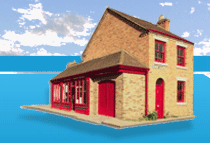|
|
 |
|
Background Information |
Warm-up activity |
Text |
|
Make Today Count

When I went upstairs to our bedroom, I had one more thing to do before going to bed. I took a piece of paper from the desk in my studio, and wrote the word ' death' on it. This was my death that I was spelling out. I had to face it, just as my family did. I looked at that piece of paper for about five minutes --- looked and looked and looked. Then I slowly put it back in the desk drawer and got ready for bed. Wanda had been sleeping in the den ever since she had begun to have nightmares. But that night, for the first time in a long time, we slept in the same bed together.
Soon after the first chemotherapy treatment, I asked Wanda to help me clean up the studio. The desk, the bookcases, and the typewriter were deep in dust, but we finally managed to make the room spotless. I hadn't written anything for a long while.
Now I began to write again. One of my first pieces was about a Christmas I remembered. I was seven years old, it was during the Great Depression, and we were living on a rundown farm. In times as hard as those, I didn't think I would get any presents. A blizzard had developed on Christmas Eve, and I had snuggled into a featherbed to
keep warm, praying that I would get just a little something for Christmas. When I woke the next morning and went downstairs, I found a decorated Christmas tree in the front room, and underneath it, a pair of lace-up boots, a red fire engine, and a sack of candy.
"I have seen many other snowfalls, " I wrote, "but for some reason I always remember that night when the blizzard came on Christmas Eve. Whenever I see the snow coming down and hear the wind begin to howl, I remember a dream that came true. "
I submitted the story to the local Burlington newspaper --- the Hauk-Eye --- for a winter writing contest and
received a first prize for it. That was my first Christmas present of the year. And others came, too. I hadn't
expected much for the Kellys that Christmas.Wanda and I had only a little money, although we had been able to make
ends meet with the Social Security disability payments and Veterans Administration checks we had been receiving.
But Christmas 1973 turned out to be one of the warmest our family ever had, thanks to the generosity of a few friends,
particularly those at the factory where Wanda had worked. We received cash, hams, turkeys, and countless boxes of candy.
Wanda bought a few presents for the children. Most important, the entire family was together .
The day after Christmas, I decided it was time for me to write about the struggles of a cancer patient.
Before I knew that I had cancer, I had thought of it as similar to leprosy--- a disease that rotted people
slowly --- and visibly --- away. Life with cancer didn't have to be that way, and I wanted people to know this.
Of course, I didn't have all the answers, but I wanted to show that cancer could be approached with openness,
and that dying people did have something to live for. Although I had read about all the money being spent on cancer
research, I had heard very little about the emotional rehabilitation of cancer patients and their families. The void
was obvious. No matter how the problem of cancer is handled in a family, all the members of the family are bound to be
affected in some way .
I spent two days writing and editing the piece. "Once, " I wrote in it, "I asked how there could be a God who would let so many terrible things happen. Now I ask myself how I can doubt the existence of God. . . when I hear a child's laughter on a summer evening, or see around me the miracle of life itself. When I hold my hand to my chest and feel the beat of my heart and realize this is life and I am part of it, I know there has to be a God. When I think to myself how lucky I was to have such an understanding person as my wife, Wanda, I know good things happen. When someone does a kind thing for me, I know this is all part of this miracle of living. "
"On Christmas a Burlington woman called to tell me her husband had been told recently he had lung cancer. She wanted to know if I would come to their house and talk to him. He felt he would like to just sit down and talk to someone with the same problems he had. "
"The thought came to me that there should be some kind of organization of people with incurable diseases. These people could help each other, and I am going to work on this. . . "
I sent the story to the Hawk-Eye, and the editors decided to use it in the Sunday, January 6, edition.
The story was carried on page 2, along with a picture of me looking out from our bank porch and another
of me taking my pills. The day the story appeared, I received several telephone calls from other cancer patients,
telling me how strongly they supported my idea of forming an organization. So I arranged for a gathering at the
local Elks Club on January 25. With the help of a little publicity from the local newspaper, eighteen cancer patients
and members of their families, including Wanda and me, met that night in the upstairs meeting room.
One of the first things I told the group was that I didn't think we were there to cry on one another's shoulders. We weren't there to find out who was the most seriously ill. We were there to share our mutual problems and to try to work them out so that we could live as close to normal lives as possible. We went around the table introducing ourselves and telling our stories as a way to break the ice. After some discussion, we decided we should try to get together once a month to talk with one another and to listen to speakers who could help us face our illnesses.
Several days before the meeting, it occurred to me that if we were going to start a group, we ought to have a name. I had three suggestions: Live Each Day Fully; Live for Today; or Make Today Count.
When I put the suggestions to a vote, the other seventeen hands were raised in support of my choice.
The vote was for Make Today Count.
From Human Dimensions in Nonfiction,
ed. , Woolf, New Jersey, 1979.
Approximately 2 , 000 words.
|
|
|
 |








